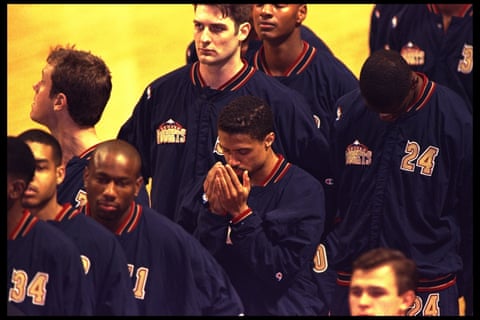Yesterday was, as the US Army’s website reminds us, another dubious memorial day, “The Vietnam War Veterans Recognition Act of 2017 was signed into law by President Trump, designating every March 29 as National Vietnam War Veterans Day.” President Bonespurs cynically pronounced a day of memorial for people he called “suckers” and “losers” A friend reminded me, via Facebook, that Friday was when we should all honor the sacrifice that was made for our freedom in that war. The ruling class, like Trump, believes we should celebrate the money they made from profiting on wars and the distraction those wars provided from the damage that they were doing to our nation and the world. From 1955-75, that twenty-year war caused 1.1 million Vietnamese war dead and Vietnamese civilian deaths was in excess of 2.0 million. There is no way to describe the Vietnam War as anything but an empirical invasion of a foreign nation with no national interests justification. The same goes for practically every war the US has entered into since the Revolutionary War, al 107 of them. The US South would argue that even our own Civil War was an empirical invasion. If there is a human history after the USA collapses under the usual internal battles that have destroyed every empire in history, I imagine our national sport will be recorded as “war, with football, baseball, jazz, and Hollywood as recreational distractions.”
“Praise the Lord, this is the Vest residence,” was how Don answered the phone in 1974, the last time I saw him. My little family was passing through Salina, on our way back to Nebraska from visiting my family in Dodge City for some warm-weather holiday, and I took a slightly longer route home to see my old friend,. Don had experienced some rough years since the last time I’d seen him. In early 1970, Don had been one of the most rock-steady drummers I’d ever had the pleasure of playing with. We met while still in high school, he was clinging to the tattered remains of a K.U. college basketball scholarship that was rescinded when his knee wouldn’t recover from a late season high school game injury. I never saw Don play basketball, but he was such a “natural” athlete I have no problem imaging him playing at a level far beyond average.
When we met, I was in the last semester of my dismal high school senior year. Don had been a standout star basketball player at Dodge’s Sacred Heart Cathedral Catholic School, but a knee injury had taken him out of the lineup and blown up his future. In 1965, Vietnam was growing into the threat it would become for all of my generation’s male victims and we were thrashing around a bit trying to figure out where that war would intersect our lives. For some of us, especially the non-white “us,” it was obvious there would be no escape from becoming cannon fodder. The draft loomed large at our 18th birthdays, like a huge black wall blocking every possible escape. Looking back now, I realize that my friends and I played music the way we did as a scream of desperation and protest. For most of us, our WWII fathers did their best to make military “service” seem like an honorable obligation. I know mine did.
From early spring in 1965 until just before I left Kansas for Dallas, Texas in 1968, I lived in a tiny trailer on the south side (“the poor side of the tracks”) of Dodge, with a band on the road or a shared trailer in Hays, Kansas, or in a lean-to on the Arkansas (pronounced are-can-sus in Kansas) River west of town a few miles. One of my fondest memories of Don was while I was on the river, he’d hiked out to spend an afternoon with me hunting. We both had single-shot .22’s, but his was much more of a gun than mine; because he was using it. There wasn’t much to shoot at that day. Usually, I lived on jack rabbits, pheasant, and eggs from the egg distributor who also ran the trailer court where I sometimes lived. We hiked along the river, heading west toward Cimarron, probably talking about whatever gig we’d recently had or one in the future. Don pointed west and said, “See that Blue Jay in the tree?” And I said, “What tree?” (There weren’t and aren’t a lot of trees in Kansas.) He aimed at something and shot. We hiked for a good while and, finally, came to a tree and there was a dead Blue Jay on the ground.
In 1967, I’d bombed out of my Navy physical because of asthma (that I didn’t know I had until the Navy doc flunked me), moved to Dallas for a Trump-style fraudulent “computer tech school,” met the love of my life and was at the tail-end of a brief stint as a folk singer and struggling to survive as sole-support for the two of us. Don and Ed, two ex-bandmates from Kansas, drove to Dallas to hang with me and Ms. Day before heading out to Army basic training. Those two, and Ms. Day, were my best, dearest friends and it felt like we were saying “goodbye” way too early in all of our lives. Ed would go on to specialize in the Army’s pitiful electronics technician program and spent his military time in Germany. Don would become an Army sniper in Vietnam.
My attitude toward the war shifted during the months that I was waiting to be inducted and the day I flunked my physical, thanks to the Hutchinson New’s syndication of David Halberstam’s New York Time’s Vietnam reporting. Aoso, thanks to my new Dallas hippie friends, I’d also read Halberstam’s The Making of a Quagmire: America and Vietnam During the Kennedy Era and his second piece of “fiction, One Very Hot Day and my opinion of that war and my country’s values were shifted left for life. Don had to leave first and Ms. Day remembers the two of us playing basketball at an outdoor court somewhere before he headed off to basic training. Ed and I played at the Rubaiyat.with a jug band assortment of freaks and players before he also left for basic.
I tried to stay in touch with both of them from my “safe” life in Texas, but Ed was quickly offended by my anti-war attitude and cut off communications emphatically not long after he landed in Germany for the duration of his “service.” Don and I wrote often and I wish I’d saved his letters, but almost nothing from my pre-1983 life survived the move from Nebraska to California. Don went from being, like me, a Kansas yokel to a deadly assassin to the most courageous war protester I will ever know. After several “missions” of dubious morality he, somehow, managed a transfer from Vietnam to Germany in the laughable Criminal Investigation Division (CID). Don’s description of the several-floors-underground, ex-Nazi SS basement secret quarters, CID offices was surrealistic, at best, and indicative of the US military’s decent into decadence, at worst. By then, Don was convinced the entire US military and government needed a criminal investigation. My memory of 50-year-old events is sketchy, but I hope I always remember some of Don’s description of his deciding to take a blanket to an Army warehouse, in the dead of a German winter, strip off his uniform, and refuse to leave or obey orders until he was given his release from the Army.
As a result of his protest, Don received a “general discharge” and returned to Kansas where I ran into him, again, when Ms. Day and I attempted to escape Texas in 1969 for Oregon or Washington, but our ‘63 Ford Ranchero full of meager belongings and a cat and us died in northern Oklahoma and barely delivered us to Dodge City. Don was taking an electronics course at the sad excuse for a local tech school and suggested that I might also want to try that route. I found a job as a welder at a local manufacturer, enrolled in the tech school program, and six months later had to drop out and “get a real job” because Ms. Day was pregnant. During that six months, Don and I formed another band and played regularly as a 3-piece power rock band with another guy who fumbled along as our bass player.
Ms. Day’s pregnancy (and another one two years later) forced my career decisions for the next decade and I’ve written a good bit about those years. I mostly lost touch with Don, Ed, and my past life as a wannabe-rock-star. In late September, 1970, Don was convicted of marijuana possession and “intent to sell” and got a 6 month jail sentence for that ridiculous “crime.” That pretty much put a nail in his future and, according to Ed and other sources, Don had quite a few problems with drugs and the law afterwards. In 1974, after the “praise the lord” telephone announcement, I spent a few hours with Don and his family in Salina (as I remember it). He was some kind of fundamentalist, unordained by anything other than his belief in his god, self-proclaimed “minister” and I was still the savage atheist I’d be my whole life. He made a living as a carpenter and his home was a beautiful demonstration of those skills. I don’t remember much about that visit, but Don was clearly struggling to find himself and it was the last time I would see him. Three years later, Don would be divorced and living in an even more dilapidated Kansas town. The stories I heard about him from the 80s until the early 2000s had him in and out of legal trouble and dying somewhere between those years.
 When I sat down this morning to write this Google surprised me with the fact that Don died in 2021. His obituary indicates that he’d found some kind of peace and regained a good bit of who he was. I can not reconcile this picture of a ZZ Top-looking guy with the tall, blond, athletic boy-and-man I knew, but I love the fact that he, at last, seems happy with his life. I feel like I missed years of opportunity to reconnect with my old friend because I’d believed he died at least 20 years earlier.
When I sat down this morning to write this Google surprised me with the fact that Don died in 2021. His obituary indicates that he’d found some kind of peace and regained a good bit of who he was. I can not reconcile this picture of a ZZ Top-looking guy with the tall, blond, athletic boy-and-man I knew, but I love the fact that he, at last, seems happy with his life. I feel like I missed years of opportunity to reconnect with my old friend because I’d believed he died at least 20 years earlier.
Once inside the security office, which isn’t much more than an overpriced trailer with extra windows, I had to strip down to my teeshirt, Aerostich riding shorts, and socks while the border cops meandered about doing their low-tech job of determining what kind of contraband I was bringing into the country. I must have been quite a sight to the people who came into the office for other business.


 Israel is one more historic example of Lord Acton’s 1887 rule, “Power tends to corrupt and absolute power corrupts absolutely” (1887) and the more depressing corollary attributed to so many authors I have long given up looking for its origin, “Choose your enemies wisely, for you will become them.” For the past 76 years, any mirror an Israeli might chose to look into would reflect back an image that even someone as brutal and amoral as Benjamin Netanyahu would try to reject. Try as they might, the image will stick for as long as human history is recorded. Just like the American South and its history of slavery and repression and violence, once you’ve put that flag into the ground, that property is marked for all of human history.
Israel is one more historic example of Lord Acton’s 1887 rule, “Power tends to corrupt and absolute power corrupts absolutely” (1887) and the more depressing corollary attributed to so many authors I have long given up looking for its origin, “Choose your enemies wisely, for you will become them.” For the past 76 years, any mirror an Israeli might chose to look into would reflect back an image that even someone as brutal and amoral as Benjamin Netanyahu would try to reject. Try as they might, the image will stick for as long as human history is recorded. Just like the American South and its history of slavery and repression and violence, once you’ve put that flag into the ground, that property is marked for all of human history. 
 When I sat down this morning to write this Google surprised me with the fact that
When I sat down this morning to write this Google surprised me with the fact that  If not mismanaging the pandemic so badly that US cities were stacking up bodies in refrigerated trailers isn’t doing something for young and old, skilled and unskilled labor, and all of the rest of us, we’re in a pretty weird state of decline. This kind of faulty and deceptive hyperbola is not adding value to the national dialog. If supposedly educated people are unclear on what “nothing means,” we’re in big trouble; and, of course, we’re in big trouble.
If not mismanaging the pandemic so badly that US cities were stacking up bodies in refrigerated trailers isn’t doing something for young and old, skilled and unskilled labor, and all of the rest of us, we’re in a pretty weird state of decline. This kind of faulty and deceptive hyperbola is not adding value to the national dialog. If supposedly educated people are unclear on what “nothing means,” we’re in big trouble; and, of course, we’re in big trouble. .jpg)
 Early in the next (‘94-‘95 season, Abdul-Rauf began to speak out against the US invasion and occupation of Iraq and the US positions in North Africa. He had converted to Islam and made a point of not standing for the anthem because he interpreted that act as worshiping idols and
Early in the next (‘94-‘95 season, Abdul-Rauf began to speak out against the US invasion and occupation of Iraq and the US positions in North Africa. He had converted to Islam and made a point of not standing for the anthem because he interpreted that act as worshiping idols and 
.jpg)